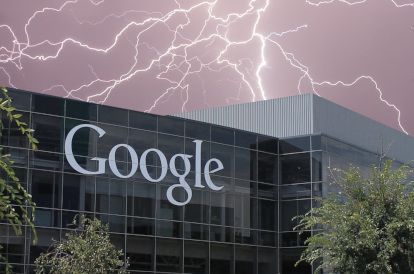Google monopoly ruling: Anticlimatic or cataclysmic?

As the dust settles on the US court ruling that Google will not have to sell its Chrome web browser but must share information with competitors, the advertising and marketing industry is still in the dark over how it will affect the business.
For its part, Google indicated that it viewed the ruling as a victory; and many commentators seem to agree, but not positively.
TAU Marketing Solutions co-founder Robert Webster, for instance, claims the developments “will do little to alter Google’s dominance”, while NetElixir founder Udayan Bose branded the ruling “anticlimactic” for those hoping to see Google’s monopoly weakened.
Bose added: “The Court delivered remedies that sound meaningful in theory but, on closer look, they don’t really change the power equation.” He also noted that the data-sharing obligation “excludes advertising data”.
Meanwhile, DuckDuckGo chief executive Gabriel Weinberg insists Google will still be allowed to continue to use its monopoly to hold back competitors, including in AI search.
Even so, over at performance marketing agency Impression, director Liam Wade believes it is still too early to judge the full implications of decision.
He adds: “That being said, I’m very interested in a future where Google is sharing more of its search data with rivals. Coming at it from the perspective of an agency spending millions of dollars for our brands inside the Google ecosystem, I can’t help being curious about what this update might mean for auction competition, CPCs, and measurement.
“Even small changes in defaults or data access could have ripple effects on how advertisers and Internet users navigate the digital ecosystem.”
For Particular Audience chief technology officer Muzammel Hoque, however, there is a sense of irony about the timing.
He explains: “Google built a great solution, and that’s why people use it. It was so good that it seemed like no one was bothered to try and build anything better. Now that there are other, AI-powered solutions like Perplexity available, search behaviour is evolving, regardless of what is pre-loaded on our devices.
“For the first time in a very long time, people seem to recognise the fact that when it comes to search Google is not the only name in town, and that there are smarter ways to find the information you want than by clicking on a load of links. So it’s kind of ironic that this ruling, obliging Google to share data and potentially undermine its dominant position, comes at a time when external, competitive forces are conspiring to do exactly the same thing.”
Meanwhile, Chris Pettit, CEO and co-founder of adtech specialist Revving, maintains the judgment is not about punishing Google’s success, it is about resetting the balance so innovation and choice are not blocked at the gate.
He comments: “For too long, defaults and exclusivity contracts have tilted the playing field, making it harder for alternative search providers to gain traction. The court has recognised the need to restore fairness in the market, while also acknowledging that the rise of AI has already started to reshape how people discover information.
“That’s an important nuance: regulators are not looking backwards, they’re trying to ensure the next wave of search innovation isn’t monopolised in the same way. For decision-makers in marketing, the message is clear. Competition drives progress. A healthier, more open ecosystem doesn’t just help the smaller players; it creates more choice, more accountability, and more dynamic opportunities for brands and agencies alike.
“For all of us building technology businesses, the message is clear: true competition is what fuels progress. Level playing fields don’t just help the ‘Davids’ of the world, they make the entire market more dynamic and ultimately benefit consumers.”
Finally, Influent content strategist Josie Geistfeld told CMSWire that in the short term, nothing changes while Google appeals. Long term, however, marketers may have to evolve from “Google-first SEO” into multi-engine teams, “with people heavily specialising in individual platforms, heavier emphasis on content repurposing, and the same expectation of constant experimentation but with the dial turned up to 11″.
Meanwhile, just yesterday (Wednesday) a California federal jury ruled that the tech giant had unlawfully collected information from 98 million mobile phone users who had asked it not to track their app activity, awarding over $425m in damages but finding punitive damages are not warranted in the class action.
And with more cases looming on both sides of the Atlantic, including a £13.6bn legal action in the UK and EU alleging anti-competitive practices in online display advertising, it seems the war on Google’s global dominance is far from over…
Also published in: Decision Marketing



